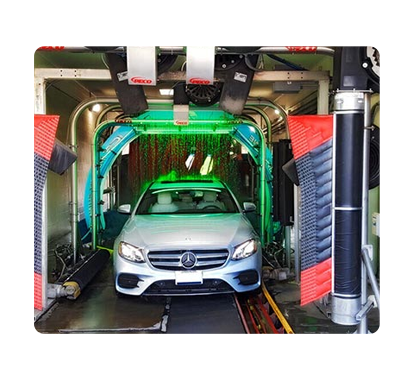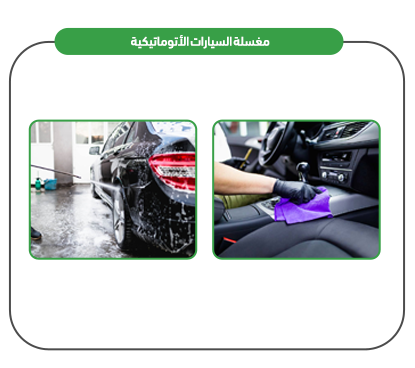An automatic car wash project is a solid investment idea that aims to provide comprehensive car and vehicle cleaning services using the latest methods and tools to ensure quality and speed. The project relies on the use of high-pressure water hoses that efficiently remove dirt and dust stuck to car bodies, while using special foam to provide effective cleaning without affecting the paint. The project’s services include washing the entire car’s exterior, thorough interior cleaning of seats and floors, and engine cleaning to maintain optimal vehicle performance. The project also offers accessories for all types of vehicles, positioning it as a distinctive destination that meets the needs of its customers. The project aims to provide an exceptional experience through distinguished services and competitive prices, ensuring the satisfaction of its target audience and brand loyalty.

An automatic car wash project provides comprehensive and advanced cleaning services aimed at maintaining the cleanliness of cars inside and out with the highest levels of precision and efficiency. The project is distinguished by its ability to remove dust from all vehicle parts without the need for harmful chemicals, ensuring the paint’s shine is preserved. The project relies on filtering and reusing the water used in washing operations instead of completely draining it, reflecting its commitment to protecting natural resources. To ensure an effective launch of Mashroo3k , contact our experts and benefit from a thorough market analysis, accurate cost and profit estimates, and an innovative operational plan that guarantees your success in a competitive market.



All areas and parts of the car are cleaned.
High-precision cleaning and polishing.
Dust and pollutants removed without chemicals.
Water and electricity savings.
Environmental sustainability solutions are adopted.
Executive summary
Study project services/products
Market Size Analysis
Risk Assessment
Technical study
Financial study
Organizational and administrative study

Service sector in GCC countries
According to the macroeconomic theory of sectors, the economy is divided into three main and large sectors: the first; – is the sector that is based on collecting raw materials and includes mining companies, timber companies, oil exploration companies, in addition to agricultural and fishing industries. The second sector; is the sector that depends on goods and their sale, such as: (car manufacturing, furniture, clothing trade… etc.). As for the third sector, known as the “services” sector; it is the sector responsible for providing and producing services, essentially relying on intangible things, such as: entertainment, health care, transportation, hospitality, restaurants, etc. This theory believes that the more advanced countries are, the more their economies are based on the third sector, unlike primitive countries, which rely mostly on the first sector (the United States of America, for example, the service sector constitutes 85% of its economy).
Kingdom of Saudi Arabia:
The State of Qatar:
Kuwait:
United Arab Emirates:
Sultanate of Oman:
Global Service Sector
The service sector is the major contributor to the world’s gross product; It alone accounts for more than three fifths of this output. The sector does not rely on the production of tangible goods such as automobile and furniture, but rather on the provision of intangible services such as banking, medical care, transportation, hospitality, leisure, etc. The value of the sector market was estimated in 2020 at USD 10,814.49 billion and rose to USD 11,780.11 billion in 2021. The market achieved a CAGR of 8.9%. After recovering from the effects of the coronavirus pandemic, global market experts expect the sector’s market to reach US $ 15683.84 billion by 2025, bringing the market to a CAGR of 7% in the coming years.

Mashroo3k Consulting recommends investing in the services industry, as its contribution to the global GDP increased from 62.8% in 2010 to 65.7% in 2020. According to World Bank data, the contribution of this industry to the global GDP is expected to rise to 69.6% by 2030.